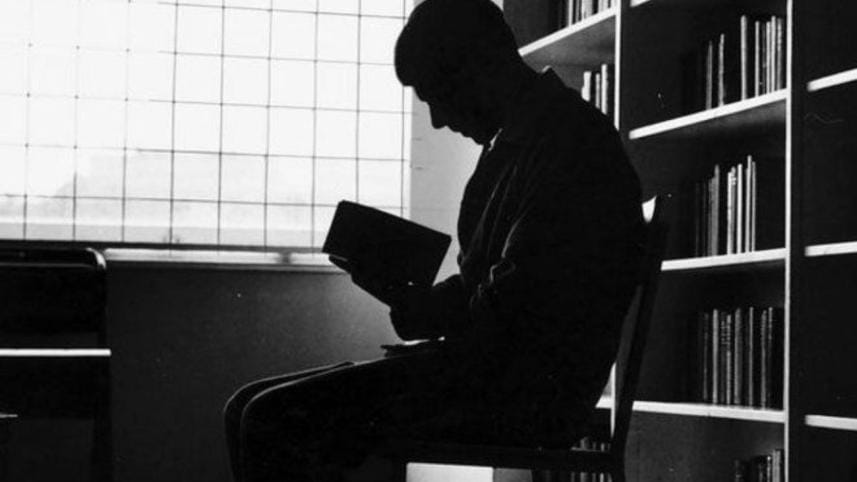Access to books for prisoners in Bangladeshi jails

''Words are just words, a book never harmed anyone by itself." These words by Rob May might have encouraged a lot of people to read. We all know that reading increases knowledge, provides mental stimulation and is a great source of stress relief. But does everyone have that privilege? Bangladeshi prisons or "The Bangladesh Jail" restricts families to send books to inmates because its policies don't say anything about it. And it is an issue no one is concerned about since there are bigger issues to solve.
Most prisoners, either juveniles or adults spend hours inside cells thinking about their loved ones. A book in this case can not only reduce their frustration but keep their spirits high.
Access to books can allow under trial prisoners or convicts to stay connected with the outside world. The Dhaka Central Jail authorities strictly monitor what the prisoners' families send to them as there may be non-permitted items. Thus a departmental store is present on the prison premises which supplies daily needs. Anyone wanting to send anything to an inmate must buy from that shop, which the authority carefully inspects and passes inside in locked bags. Anything which goes against the prison policy, which in our case is books, is immediately confiscated.
There are no book stores available in the prison establishment. Although inside the actual jail boundary, there is a library and educational facility which can be used by inmates wanting to learn. But prison libraries are heavily underfunded, meaning it consists of only a few copies of the Jail Code, which many would not even want to read.
Speaking to a few under trial prisoners, I found out that many are still at university or are waiting to give public exams. Many of them want to utilise their jail time by preparing for the exams, but aren't able to do so. "My exams are just knocking at the door and I am stuck here waiting for my bail. I would get just three days to study if I get bail next week. My family tried many times to get my textbook inside but they wouldn't allow it", said Anis (pseudonym), an inmate at the Dhaka Central Jail. Like him, many others face uncertainty and are consumed by depression. The correctional nature of the jail falls flat as due to this, prisoners are further pushed into despair.
The Bangladesh Jail is governed by the Prison Act of 1894 and its guidelines can be found in Code of Criminal Procedure, 1898, the Code of Civil Procedure, 1908, the Lunacy Act, 1912, Police Act, 1861, to name a few. None of these laws and rules talk about a prisoner's right to read. The UN Standard Minimum Rules for Treatment of Prisoners requires "every institution to have a library for the use of all categories of prisoners, adequately stocked with both recreational and instructional books, and prisoners to be encouraged to make full use of it."
Clause 90 of this Standard expressly states "An untried prisoner shall be allowed to procure at his own expense or at the expense of a third party such books, newspapers, writing materials." Since Bangladesh is committed under the International Covenant on Civil and Political Rights (ICCPR) of the United Nations, it becomes a duty to live up to its standards.
In prisons around Bangladesh, reading is either considered a luxury or a potential threat. But looking into prisons of other countries, our perception may change for the better. In the UK, families and friends can send books to prisoners so long they are brought from four approved shops. The prisoners are only allowed to have a total of 12 books in their cells. Many US prisons are now upgrading to distributing e-books to inmates as a way to modernise the reading experience. According to the Justice Secretary of the UK Government, Micheal Gove, "People who are currently languishing in prison are potential assets to society. They could be productive and contribute."
The Constitution of Bangladesh safeguards the fundamental rights of every citizens of the country. Even those individuals in this lawful society who are behind bars are entitled to these rights. Article 39 of this Constitution grants them the freedom of expression which no authority can take away. Reading falls under such freedom and it must be rightly upheld. Books are essential for rehabilitation of the prisoners. It can reduce the possibility of them committing the same offences again due to the positive effect it has on them.
The learning culture must start in our prisons. Examinees who are awaiting bail must be allowed to read their textbooks sent by their families. They must not be deprived of pursuing knowledge or building their career just because they are in prison. It must not be forgotten that jail is not just a place of confinement but a correctional facility.
Aiman R Khan is an Advocate, Dhaka Judge Court.




 For all latest news, follow The Daily Star's Google News channel.
For all latest news, follow The Daily Star's Google News channel.
Comments